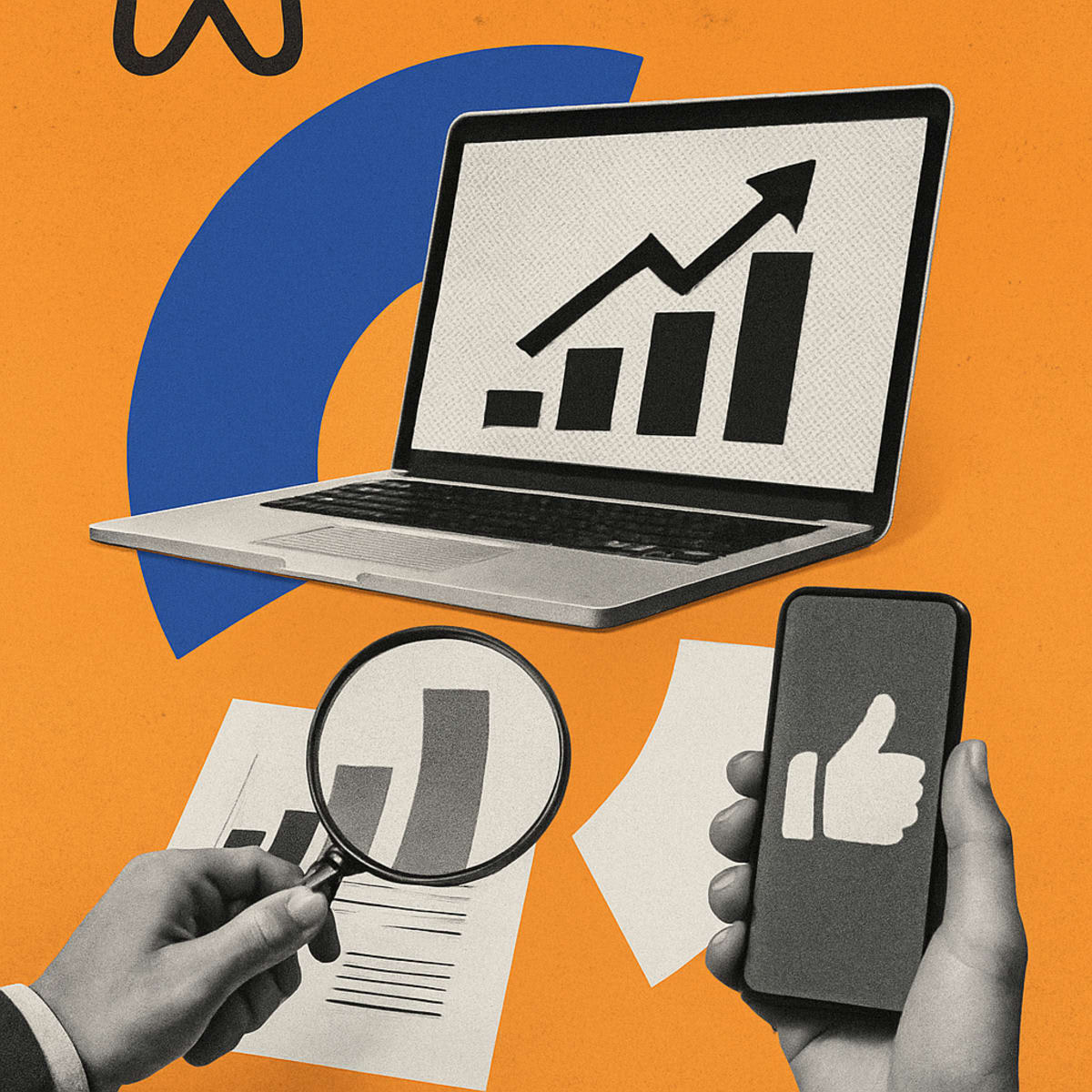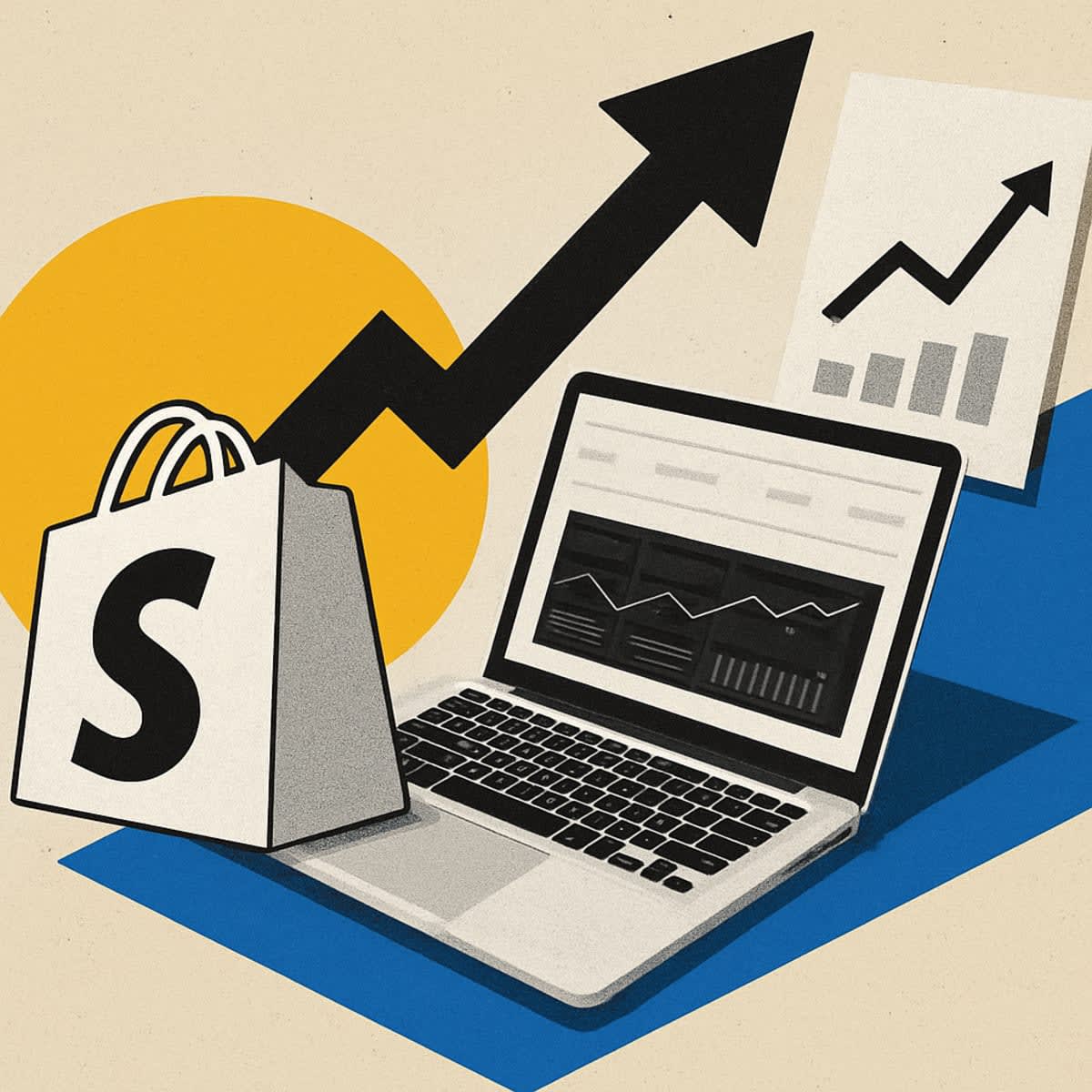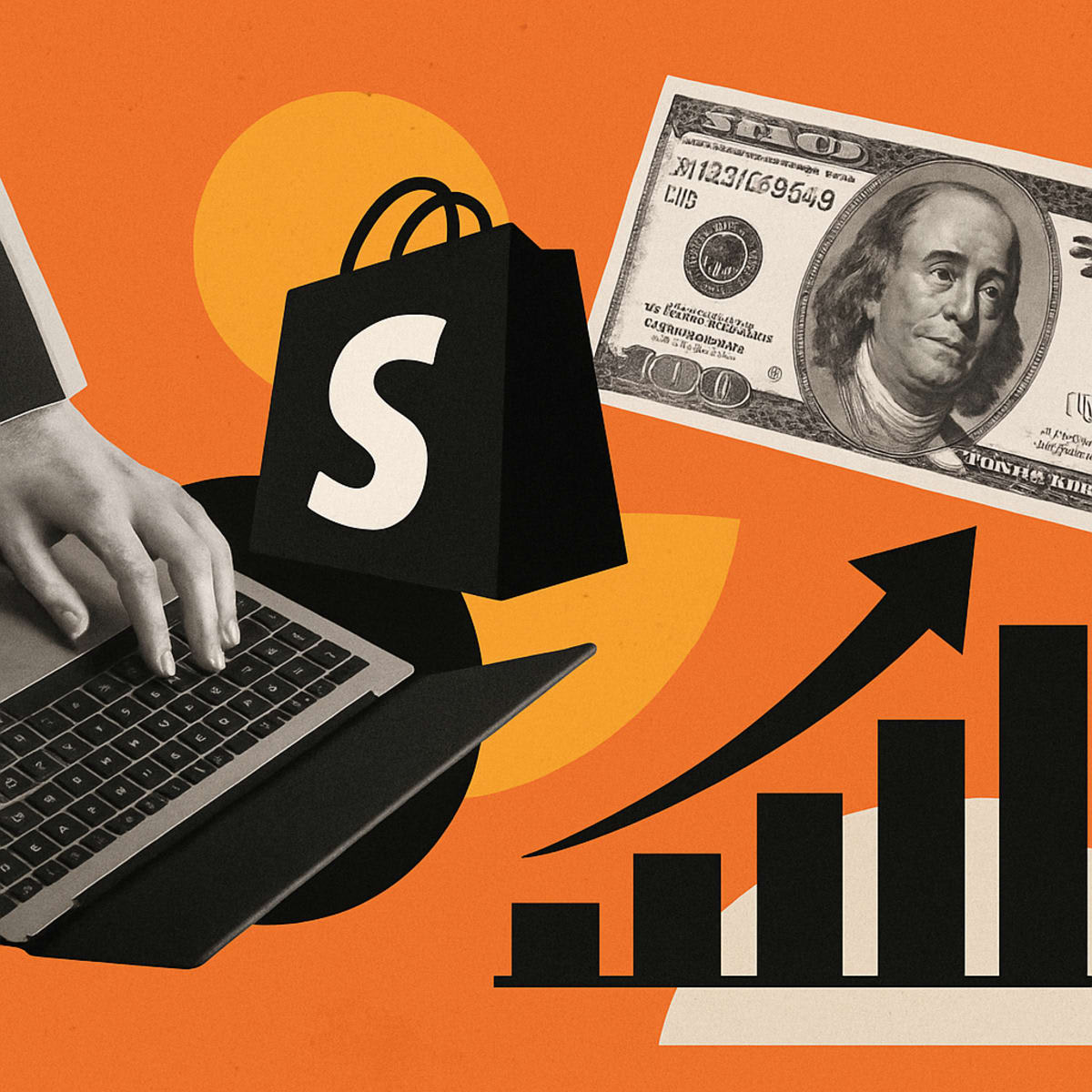AI Workflow for Social Media Marketing: Complete Guide
Overview of AI Workflow in Social Media Marketing
AI workflow in social media marketing integrates artificial intelligence tools and techniques to automate, optimize, and enhance various marketing processes. This approach helps marketers manage their social media strategies efficiently and effectively.
Key Components of AI Workflow
Content Creation: AI tools generate engaging content, including social media posts, images, and videos. Platforms like Copy.ai enable businesses to create and curate content quickly, saving time and ensuring a consistent social media brand voice across channels. A social media content calendar can be populated faster with these tools. For a tailored approach, consider the AI Marketing Agent from Enrich Labs—it custom-trains on your unique brand voice and guidelines to ensure seamless content creation.
Scheduling and Posting: AI automates the scheduling of posts at optimal times. This ensures that content reaches the audience when they are most active. Tools analyze audience engagement patterns to determine the best posting times Coschedule.
Analytics and Insights: AI-driven analytics tools analyze vast amounts of data to provide actionable insights about audience behavior, content performance, and engagement metrics. AI algorithms identify which types of posts perform best by tracking social media KPIs, allowing marketers to optimize their strategies Sprout Social. The AI Marketing Agent enhances this process by delivering unique customer insights, allowing for data-driven decision-making.
Trend Prediction: AI tools analyze data to detect emerging trends and shifts in customer sentiment. Chipotle, for example, utilized AI to monitor social media sentiment during the COVID-19 pandemic, adjusting their messaging and marketing strategies in real-time. This aligns with a proactive approach to monitoring social media trends Sprout Social.
Customer Engagement: AI automates responses to customer inquiries through chatbots and automated messaging systems. These systems handle high volumes of interactions, improving response times and customer satisfaction Copy.ai. Enrich Labs' product excels in this area, autonomously performing social media content moderation and analyzing thousands of comments and DMs across all major platforms 24/7.
Case Studies
- Mastercard: Implemented an AI-driven digital marketing engine to analyze social media conversations and identify microtrends. This enables quick engagement with relevant trends Sprout Social.
- Chipotle: Leveraged AI to track shifts in customer sentiment, informing their marketing and customer service strategies during the pandemic. Successful campaigns like #ChipotleTogether resulted from these efforts Sprout Social.
- E-commerce Brands: Some brands successfully use AI-powered chatbots to manage customer inquiries on social media, increasing customer satisfaction and reducing response times by up to 25% Copy.ai.
Benefits of AI in Social Media Marketing
- Increased Efficiency: AI tools automate repetitive tasks, allowing marketers to focus on strategic activities and creative processes. Reports indicate using AI in social media management increases overall efficiency and engagement rates by up to 67% Coschedule.
- Data-Driven Decision Making: AI enables marketers to make informed decisions based on real-time data, optimizing strategies for better performance. The Sprout Social Pulse Survey indicated that 82% of marketers saw positive results from using AI tools in their workflow Sprout Social.
- Enhanced Personalization: AI helps brands target specific audience segments better, leading to higher engagement and conversion rates by creating a tailored social media customer experience Coschedule.
AI-Driven Improvements in Social Media Marketing
1. Content Creation and Optimization
AI enhances the efficiency and effectiveness of content generation. Platforms like olly.social allow users to manage content across multiple social media platforms, offering features such as AI-generated posts, comments, and virality score assessments to optimize engagement. This automation reduces content creation time by up to 50%, enabling marketers to focus on their social media marketing strategy Pratham @ Explainx.
2. Advanced Social Listening and Analytics
AI tools monitor social media conversations, allowing brands to track mentions, analyze sentiment, and identify emerging trends. A good social listening agency will use platforms like Sprout Social which utilize AI to provide insights into user engagement and social media competitor analysis, informing marketing tactics and improving brand positioning Daniel. A good social listening strategy leverages these tools.
3. Intelligent Customer Service and Engagement
AI-powered tools provide automated customer service solutions, enabling brands to engage with users 24/7. Jadve AI, for example, automates responses to inquiries, reducing the workload on social media support and customer service teams and enhancing user experience Daniel. However, the AI Marketing Agent stands out by providing a custom-trained approach that aligns with your brand's unique voice.
4. Predictive Analytics and Targeting
AI enhances targeting by analyzing user behavior and predicting future actions. Hootsuite, for example, leverages AI to suggest optimal posting times and analyze audience behavior, helping marketers refine strategies for better social media engagement Daniel.
5. Personalization at Scale
AI delivers highly personalized marketing messages. Canva integrates AI to suggest design elements tailored to brand aesthetics, making it easier for marketers to create visually appealing content quickly Daniel.
6. Enhanced Lead Generation and Nurturing
AI streamlines lead generation through automation and predictive scoring. Tools like HubSpot’s Lead Scoring Software utilize machine learning to identify high-potential leads based on behavioral data, optimizing marketing efforts Jenny Romanchuk.
Case Studies
- Sephora: Uses AI in its Beauty Insider program to segment customers effectively, driving 80% of transactions through targeted marketing strategies based on AI analysis of customer behavior Jenny Romanchuk.
- Amazon: Employs predictive analytics to optimize inventory placement based on anticipated demand, improving customer satisfaction through faster shipping Jenny Romanchuk.
AI Tools for Social Media Marketing
1. Hootsuite
Hootsuite automates post scheduling and analyzes audience behavior. Its AI features optimize posting times and analyze content performance, providing actionable recommendations to improve engagement.
Example
Hootsuite's AI analyzes past performance to suggest the best time to post for maximum visibility based on user activity data.
2. Sprout Social
Sprout Social employs AI for deep analysis of user data, helping marketers predict successful content and manage audience interactions intelligently.
Case Study
A marketing team using Sprout Social reported a 30% increase in engagement after utilizing its predictive analytics to tailor their content strategy.
3. Buffer
Buffer allows users to manage multiple social accounts and schedule posts. Its AI capabilities analyze user activity to recommend optimal posting times and provide detailed analytics for strategy improvement.
Example
Buffer’s AI-driven insights can lead to better engagement rates by suggesting specific times for post releases based on historical engagement data.
4. Jadve AI
Jadve AI enhances customer engagement on social media through AI-powered chatbots that handle inquiries and provide personalized responses, streamlining customer support.
Example
Brands using Jadve AI have seen a reduction in response time by up to 50% thanks to automated replies and efficient query handling.
5. Canva (with AI features)
Canva integrates AI to assist users in creating visually appealing graphics for their social media. It suggests design ideas and optimizes color schemes and layouts based on current trends.
Example
A small business used Canva's AI features to create eye-catching social media graphics, resulting in a 25% increase in user engagement on their posts.
6. Lately
Lately uses AI to automate content creation by analyzing existing posts to generate new social media content aligned with the brand’s voice and style.
Case Study
A content marketing agency implemented Lately and reduced their content creation time by 60%, allowing them to focus more on strategy and client interactions.
7. SocialBee
SocialBee helps automate posts while analyzing engagement metrics to optimize social media strategies. This makes it easier to maintain a consistent posting schedule.
Example
SocialBee users report that the AI-driven scheduling has led to a significant increase in audience interaction, with some brands noting a 40% uptick in engagement.
8. Olly.social
Olly.social is an AI-powered Chrome extension that allows for content creation across multiple social media platforms. It offers features such as AI-generated posts, comment generation, and virality score assessment.
Highlight
With olly.social, brands enhance their content strategy by predicting engagement rates and optimizing post timing based on AI analytics. For businesses seeking a more comprehensive approach, the AI Marketing Agent from Enrich Labs combines these features with autonomous moderation and brand-specific training—setting it apart from other tools. Many of these functions are part of learning how to use AI in social media marketing.
Techniques Used in AI Analysis of Social Media Data
AI utilizes several advanced techniques to analyze social media data, including:
1. Sentiment Analysis
Sentiment analysis is a natural language processing (NLP) technique that interprets and classifies emotions expressed in text data. It categorizes sentiments as positive, negative, or neutral. For instance, Ryanair's social media customer sentiment analysis on Instagram revealed that out of 2,221 mentions, 743 were positive while only 36 were negative. This helps the brand understand public perception and handle negative comments on social media effectively Brand24.
2. Natural Language Processing (NLP)
NLP enables AI to process and analyze large volumes of text from social media. AI tools identify sentiments, detect trends, and extract actionable insights. For example, tools like Fathom process millions of verbatim responses to provide insights into customer feedback, significantly speeding up analysis time and improving the quality of insights Fathom.
3. Social Network Analysis
Social network analysis focuses on the relationships between users and how they interact. AI identifies micro-influencers and tracks brand mentions across various platforms, providing valuable insights into audience engagement and network dynamics. Ekkobar, for example, analyzes social media data to assess talent risk, employing a 20-point analysis system to detect concerning content Ekkobar.
4. Predictive Analytics
AI tools leverage historical data to forecast trends and audience behaviors. This predictive capability helps brands optimize marketing strategies by identifying the best times to post and the types of content that resonate most with their audience. Tools like olly.social automate content scheduling and engagement tracking, enhancing overall social media management Pratham @ Explainx.
5. Automated Content Creation
AI simplifies the content creation process by generating posts, comments, and replies tailored to various platforms. This automation speeds up content generation and enhances engagement by ensuring timely responses to audience interactions Kuasar Video.
6. Crisis Management and Risk Mitigation
AI tools monitor social media in real-time, identifying potential crises before they escalate. Ekkobar’s Risk & Crisis Mitigation solution alerts users about harmful posts and analyzes related conversations to provide strategies for addressing issues effectively. A strong social media threat monitoring is often powered by these AI tools Ekkobar. A robust social media crisis management plan is often powered by these AI tools.
AI analyzes social media data through sentiment analysis, NLP, social network analysis, predictive analytics, automated content creation, and crisis management techniques. These methods enable brands to gain deeper insights, improve engagement, and mitigate risks associated with their online presence.
Challenges of Implementing AI in Social Media Marketing
Ethical Dilemmas
As AI integrates into social media marketing, ethical issues arise due to the need for massive volumes of data to train and optimize AI systems. The systematic collection and use of personal data have come under scrutiny, requiring compliance with regulations like the GDPR to avoid fines and protect brand image. Marketers must ensure AI systems do not reinforce biases or discriminate against specific user categories, which is essential for maintaining consumer trust.
Lack of Human Touch
AI-driven interactions may lack the empathy and authenticity that customers expect. A chatbot misinterpreting a question or providing a generic response can damage customer relationships. Striking a balance between AI automation and human agents is crucial. Businesses must determine which interactions AI should handle and which should involve human agents.
High Initial Costs
The financial burden of implementing AI can be significant, especially for small to medium-sized businesses. These companies often face high upfront costs for AI tools and infrastructure, as well as ongoing maintenance and training expenses. Industry experts note that adapting to AI technology can require substantial investment in both time and resources, creating a barrier to entry for smaller firms.
Technical Complexity
Integrating AI into existing social media strategies can be complex and time-consuming. Many businesses lack the specialized knowledge required to implement AI technologies effectively, leading to potential misalignment in objectives and outcomes. Continuous development in AI technologies presents a challenge, as companies must keep pace with evolving tools and algorithms, which can be both time-consuming and costly.
Maintaining Authenticity
A survey revealed that 43% of marketers reported challenges in maintaining authenticity when using generative AI for social media marketing. The need to preserve the human element in content creation while leveraging AI tools complicates the marketing landscape. Similarly, 40% of respondents highlighted the challenge of preserving human creativity in the face of automated content generation, emphasizing the importance of maintaining a unique social media brand authenticity in AI-driven campaigns.
Privacy and Security Concerns
AI requires extensive data to function effectively, raising concerns over data privacy and security. Marketers must navigate legal frameworks governing data usage while ensuring consumer trust. Mishandling data can lead to significant reputational damage, as consumers increasingly understand how their personal information is utilized. Compliance with regulations like the CCPA and GDPR is essential to mitigate these risks.
These challenges underscore the complexity of implementing AI in social media marketing, requiring careful strategy and execution to leverage AI's benefits while minimizing potential pitfalls.
For businesses looking to enhance their social media marketing with AI, explore the capabilities of the AI Marketing Agent from Enrich Labs. Learn more at Enrich Labs.
 revolutionizes social media management by automating interactions and delivering actionable insights.](https://res.cloudinary.com/enrichlabs/image/upload/v1739588057/blog-images/Cs7ftH7fSIiNWnFQavu5wg_g6jg3l.jpg)



